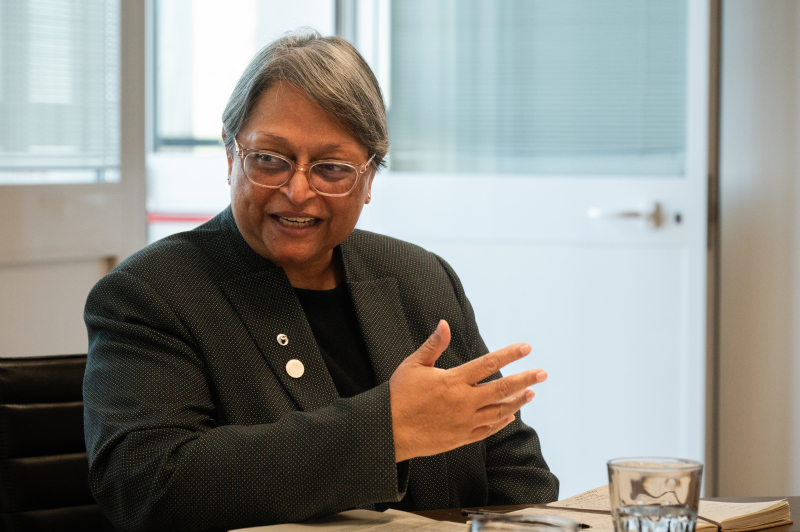
Future generations will find themselves confronted with deepening crises such as climate change and disease for which science will be an indispensable element of any realistic solution. This is why it is important for members of the global scientific community to stand together in solidarity and show support for science, its integrity, and its value.
This is an ethos we know well at TWAS, where our core mission is one of global solidarity: a world of scientists coming together to use science for sustainable development for everyone everywhere and to support emerging scientists from the global South. This benefits everyone: because it helps countries transition into economies with greater capacity and infrastructure for knowledge creation and innovation. TWAS showcases scientists from the global South who are leading the way in innovation and discovery to address local challenges that are also making a global impact. This potential needs to be amplified through building a critical mass of scientists in all subject areas, and creating fair opportunities to contribute to our shared scientific efforts towards sustainable development that benefits everyone.
How do we do this? By tapping our brain trust of TWAS Fellows and Young Affiliates; by bringing the world community together to support developing world scientists with relevant resources and training they need; through synergistic partnerships and collaborations; by creating safe environments where displaced researchers can continue their work; and by ensuring these scholars can return to and rebuild their home institutions.
The vision of TWAS Founder Abdus Salam went beyond addressing immediate crises; it aimed to confront the fundamental inequalities in knowledge production that sustain global disparities and unequal benefits of knowledge advances to the global South. Today, curtailing this inequality also involves rebuilding trust in scientific institutions and fostering strong scientific communities at all levels. These communities must also advocate strongly for evidence-based policies.
TWAS has dedicated partners who are committed to turning visionary ideas into real outcomes. The TWAS Steering Committee meeting in Trieste in March 2025, was one recent opportunity for engaging with partners and collaborators who support our mission—especially the Italian Ministry of Foreign Affairs and International Cooperation—and working with the new TWAS Executive Director Marcelo Knobel, the TWAS secretariat, and the organizations hosted by TWAS, namely the InterAcademy Partnership (IAP) and the Organization for Women in Science for the Developing World (OWSD). These interactions have strengthened my belief that our extensive network can provide the close bonds and spirit of cooperation needed to use science to ensure all of humanity survives and thrives.
At this crucial moment, let's reaffirm our commitment to scientific solidarity that crosses political borders and scientific disciplines. Together, we can create a more equitable knowledge ecosystem where scientific talent thrives regardless of geography, gender, or income—ultimately addressing humanity's existential challenges through the power of collaborative discovery that benefits everyone everywhere and leaves no one behind.
Quarraisha Abdool Karim
TWAS President

